Blog
Top 10 Learning Principles for Singing Lessons
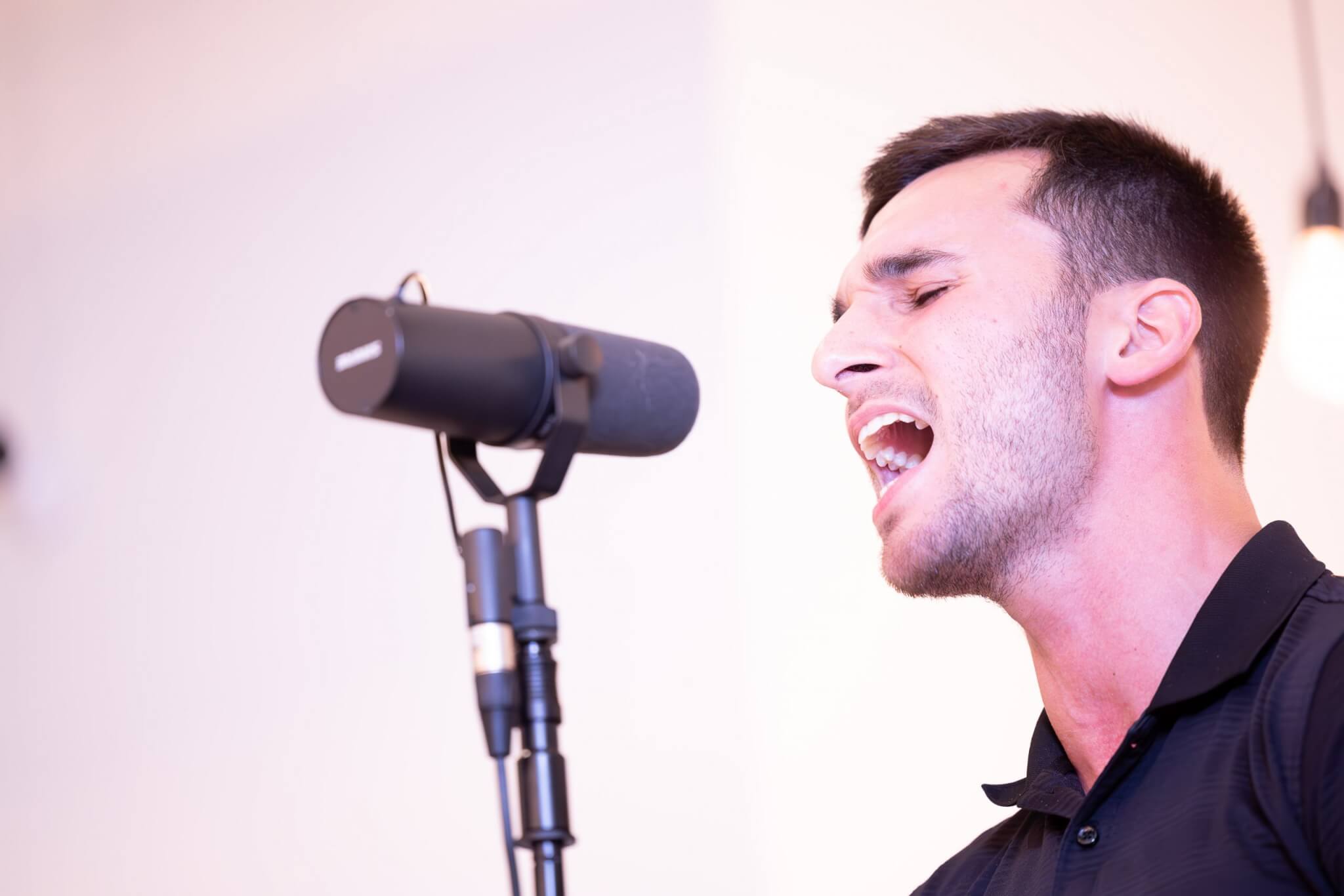
Singers are often referred to as “vocal athletes”. Why? What does being a vocal athlete mean? How do we use this to our advantage in our singing lessons?
It all boils down to this: Singing is a motor skill, just like any other sport we learn to play. It’s about building muscle memory and coordinating our muscles to the level we want to perform, and while research on voice science and vocal health is constantly growing, we have a lot more research on fitness training and motor learning that we can use – in the same way an athlete does – but for ourselves as vocal athletes when we learn to sing.
In fact, there are 10 very specific training principles that we can apply during private singing lessons and during at-home practice in order to dramatically transform our singing voice and gain confidence as we do it!

Unleash Your Voice in Your Singing Lessons
In this article, we’ll be breaking down 10 principles of training and giving practical examples of how the beginner singer can use them to make their voice training easier and more enjoyable, and experience faster results. These principles make a world of difference for beginners especially, as they provide them with a solid foundation for learning the basics of singing and vocal technique, as well as an effective practice schedule to hone their newfound singing skills outside of the studio.
While this article will focus specifically on the voice, the next installments of our motor learning series will tackle both the guitar and piano, so stay tuned for those in our upcoming newsletters! In order to read about the general benefits musicians experience from applying motor learning techniques to their training, check out our previous article on The power of motor learning.
1. The Specificity Principle
The specificity principle is the concept that your learning is much more efficient if the vocal exercises you engage in are specified to support your ultimate singing goal.
For example – an Olympic swimmer is not going to engage in the same practice routine as a marathon runner, just like a musical theater singer will engage in different vocal exercises than a pop singer would in their singing lessons. A common saying in the singing world is “If you can sing classical music, you can sing anything!” but that’s a myth! Classical singing might be impressive, but what you learn when you sing classical is not necessarily applicable to different musical styles.
In order to apply this principle to your own training, have an open discussion with your voice teacher about your needs, taking into consideration your singing style, favorite songs, and any singing outcomes you want to work towards. Do so periodically, and make sure your vocal coach selects the exercises you’ll use based on those goals. If they evolve, change your approach accordingly.
2. The Individuality Principle
Do you feel like your learning is custom-tailored to you? We’re all unique – It might sound cliché, but it’s true. The individuality principle is about honoring that uniqueness:
While the specificity principle is about tailoring the exercises you use to support your singing goals, the individuality principle acknowledges that some exercises will work for you better than others. For example, when working on breath control, some singers might really benefit from doing breathing exercises, while others see better results from letting their breath be, and not micromanaging it.
If you’ve been given an exercise that your vocal coach really loves and it works for 90% of their students, but you find that it tangles you up rather than helps you – try exploring different methods to train the same skill with your instructor. There are many ways to train the voice – find the ones that work for your singing voice – individually.
3. The Overload Principle
“Overload” sounds like a really scary word – but this is one of the most important training principles for beginners! Bear in mind, overload does not mean “over-training” – it just means taking the skill we’re practicing beyond our current performance capability – but only by a little bit.
Think of it this way: If a weightlifter can consistently lift 20 pounds, they can’t expect to suddenly be able to lift 40 pounds, but they also won’t be able to increase their current lifting capability if they stick to the same 20-pound training regimen. So what do they do?
Instead of attempting to jump from 20 pounds to 40 pounds all at once, they’ll introduce one set of 25 pounds into their workout, without sacrificing proper form or technique. They’ll do that until 25 pounds becomes their new comfort level. This way they can gradually increase their performance level over time, without the risk of injuring themselves.
As singers, you can use the overload principle to drastically change your singing ability. Let’s take vocal range as an example: when working on singing high notes, take the exercise to a place that currently feels effortless for your voice, and then nudge it upward by a half-step. Stay in that area until this range becomes the new “effortless” for you, and then repeat the process.
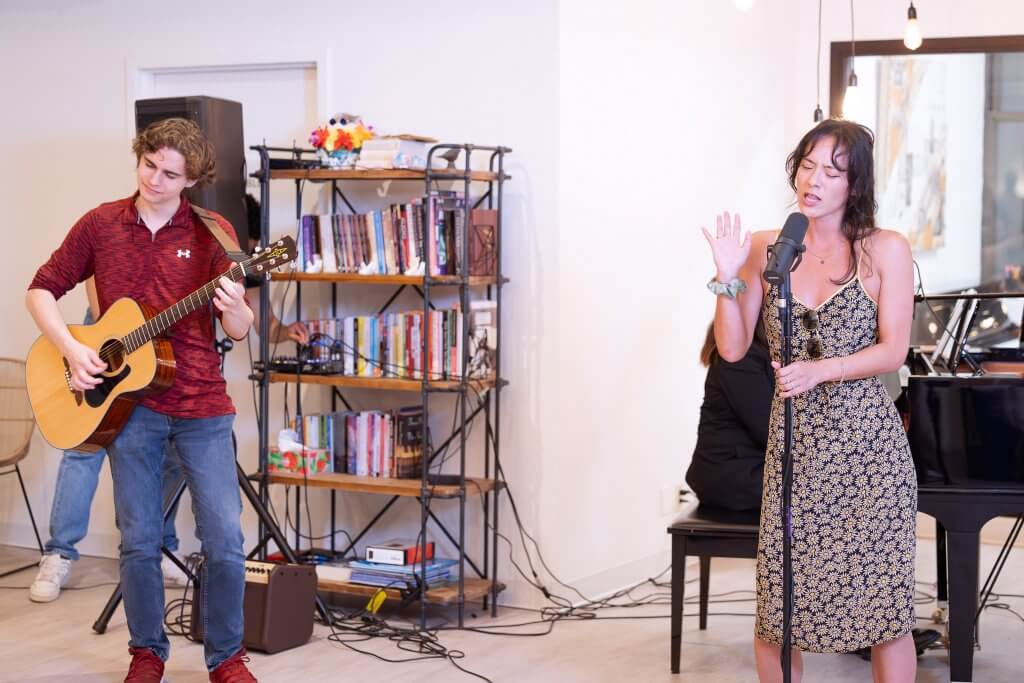
4. The Progression Principle
This is the idea that there are stages to the learning process and that when building skills, some skills need to be developed first before others can be added on. Put simply, we can’t run before we learn to walk, and we can’t walk before we learn to stand.
Just like standing and walking, you’ve acquired some of the skills you need to be a great singer back in early childhood (you know, when you came out of the womb belting your face off?) – so where should you start?
This is up for debate. Some voice teachers think we need to start with proper breathing, others think that vowel sounds and vocal tone are more important. At the end of the day, none of these can exist without the other – so it really depends on your singing goals.
Make sure you check in with your teacher about your needs to ensure that you get an appropriate starting progression for the goals that you have. For example, if the goal is singing the right notes consistently, your teacher might start you off with some basic ear training, teaching you how to match pitch, before checking to see if you can sing correctly without going off-key.
5. The Frequency Principle
How often should you be practicing? The answer to this question is in the frequency principle.
Athletes can’t expect to see significant progress if they only go to the gym one time a week – so how can we, as vocal athletes, expect to improve our sound quality or vocal control if we only work on our instrument once a week during our singing lessons?
The right balance depends on where you are in the learning journey – if you’ve just acquired a new skill that needs to be drilled, or are getting back to singing after a long break, research suggests shorter, less intense practice sessions but more frequently. This could even mean 5-10 minute sessions, but several times a day. At this stage, it’s more about the coordination of your vocal cords than it is about stamina – as your new skill needs to be drilled again and again – without fatigue.
As you get into a consistent rhythm with your practice, you can move towards longer, less frequent sessions. If you’re wondering where you’re at – start by speaking to your teacher and building a practice schedule together. At Musicians Playground, we recommend taking advantage of our group classes and open practice time in the studio exactly for this purpose. If you ever have doubt, ask yourself “Am I training, or am I straining?”
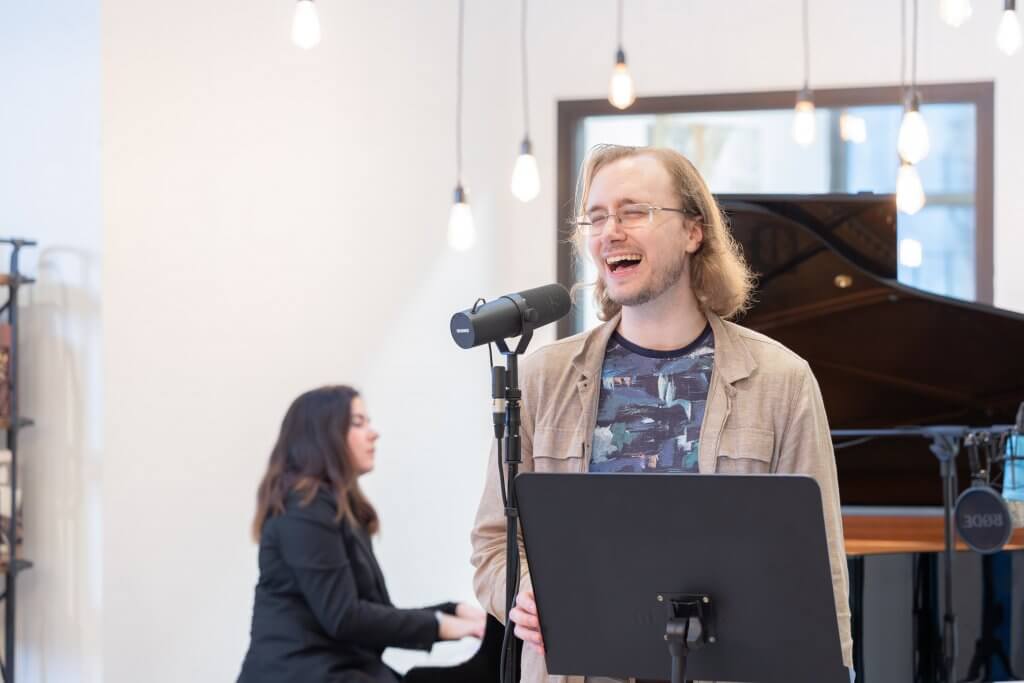
6. The Intensity Principle
How intense are the sounds you make? How can you improve your ability to make intense sounds without tiring out your vocal cords and risking injuring your voice?
A traditional athlete might measure intensity through weight, speed, or force, but a singer should consider these three factors:
How high they are singing.
How loud they are singing.
How long they’re singing for.
If any of those metrics increase, the sound our vocal folds are creating becomes more intense. But how intense should the sounds you make be?
That depends on your style: Musical theater singers, Pop/Rock belters and Opera singers generally make really intense sounds, while indie singer-songwriters and jazz crooners tend to make low-intensity sounds. This doesn’t make them less proficient singers, though – it’s simply the demand of their chosen style and musical expression.
If high-intensity sounds are on your list of singing goals, you need to circle back to the overload principle with the help of your singing teacher in order to figure out how to build the breath support, control and stamina needed to make those sounds efficiently. The general rule for the intensity principle to keep your singing voice happy and healthy is: Don’t sing too high or too loud for too long.
7. The Time Principle
How long are your singing lessons? How long should they be? You might think from these questions that you’re not practicing enough, but really, you might be over-practicing…
Here’s the deal: You only have a limited amount of time a day to sing, and if you increase the intensity of your sounds (as discussed in the intensity principle) – that amount of time drops drastically. We also know that most vocal injuries happen because of overuse, not misuse of your voice.
Do we want to be engaging in progressive overload and reach our full vocal potential? Of course! But do we want to sing as high and loud as we can for an extended period of time? Not at all! (Those are usually the difficult parts of the song, and we end up drilling them over and over!)
To apply the time principle to your singing journey, set yourself a vocal “budget”, and responsibly stick to it. Factor in your warm-up and your cool-down (we never want to start singing without a proper warm-up!) and consult your teacher to ensure that your precious practice time is used wisely. Taking advantage of group classes at MP (like the voice lab and band class) is a great way to practice with the guidance of a teacher outside of your private singing lessons.
8. The Type/Variance Principle
How are you varying the type of vocal exercises you are engaging in? The type or variance principle is about striking a balance between the muscles in our body as we work on achieving a good sound, so we can stay healthy, avoid injuries, and add interest to our learning. Think of this this way – A marathon runner is going to do a lot of running, but what happens if they only run?
Our bodies have pairs of antagonistic muscles (meaning they work together, but in opposition to each other), and when you a lot of time working on one muscle and not enough time on the other one, the muscle that is neglected becomes weak – putting us out of balance.
A perfect example for singers is spending too much time on a skill like belting (that contracts your vocal cords) and never stretching them by working out your upper range in your head voice. Now, if you sing popular music this doesn’t mean you need to sing classical in order to become a better singer, but it is encouraged to spend some time working on other skills during your lessons. Your MP instructor will help you with this, giving you varied exercises to work with outside of the studio.
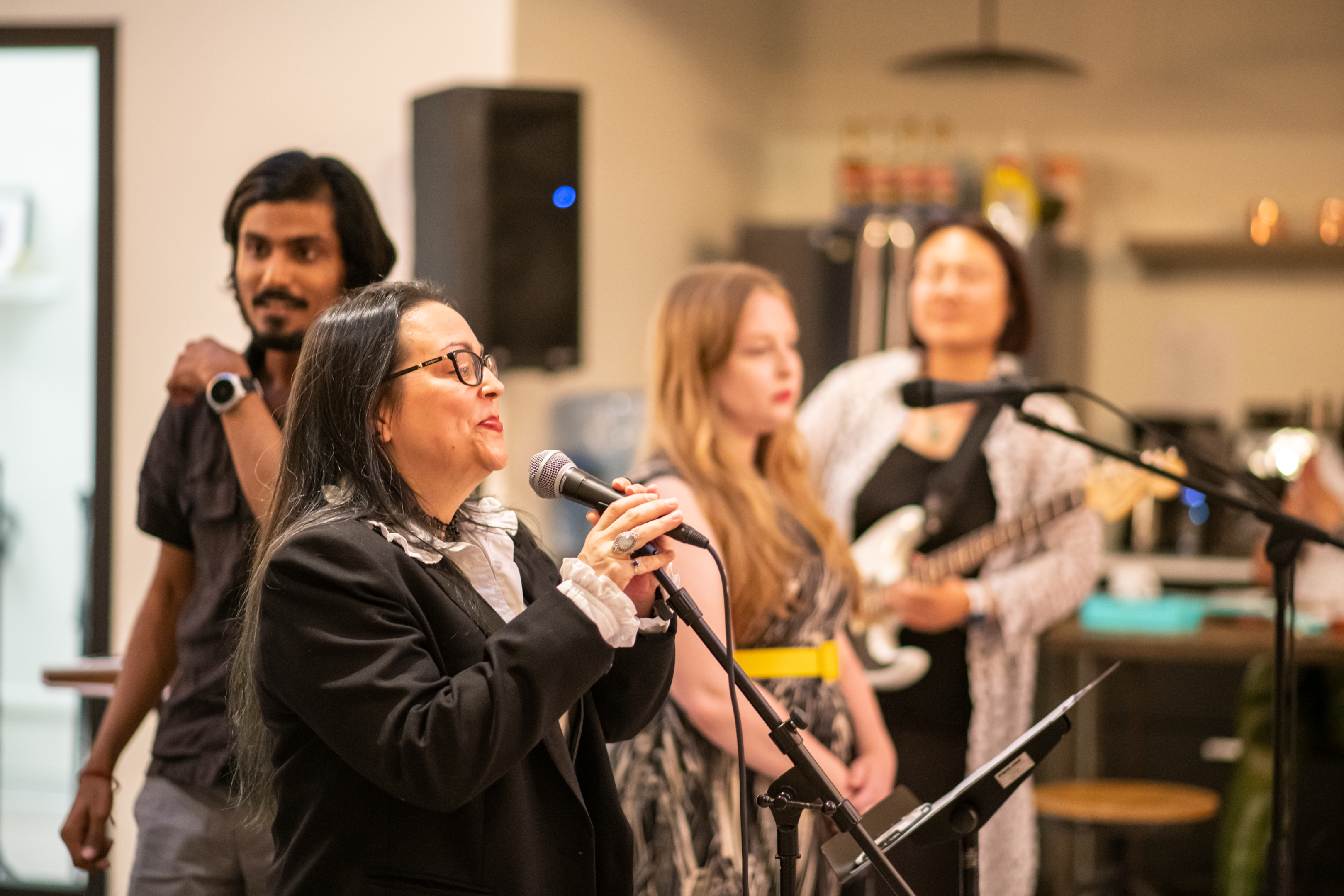
9. The Recovery Principle
Whether you’re a professional singer looking to break into the music industry, or a beginner looking to learn to sing, it can feel impossible to take a rest day, but the recovery principle is one of the most important training principles!
Your voice isn’t only for working on a song or toward a performance – it’s also supposed to be a part of your daily life, for joy, work, and conversations with your friends and family!
The recovery principle states that the body cannot repair and rebuild without adequate recovery time. This doesn’t mean you should stop talking or singing for days at a time – though that can work – but instead, think about when you are offering yourself time to rest your voice during the day, especially if you engage in public speaking or if you’ve been singing intensely that day.
We can’t be working all the time, so get creative and find ways to give your voice the rest and recovery it deserves!
10. The Reversibility Principle
3 days – that’s it! That’s how long you have before your brain and your body literally forget the new skills you just learned in your singing lessons! The 10th and final principle for this article is all about retaining the new knowledge we’ve learned. Put simply, it’s the “use it or lose it” principle!
Let’s say you’re trying to breathe properly when you sing, and you’ve had a major breakthrough in your lesson where your voice felt free and your singing was effortless – if you don’t spend time drilling this new action with consistency you’re not going to be able to build new skills on top of it (for example, breath control and management) but instead will have to go back to step one of learning to breathe correctly.
To apply this principle and fast-track your progress – try to set a consistent singing lesson schedule throughout the week to work on a song, or take advantage of our group classes (we offer over 40 a month!) or open practice time if you need the guidance of an instructor during your revision time. It’s a lot easier to be consistent once you get into a rhythm!
Ready To Start Singing Lessons?
Hopefully, this article gave you a deeper understanding of how our voice works when we learn to sing and offered some practical insights on how to train efficiently. Whether you’re looking to fine-tune the more technical aspects of singing or are trying to develop stage presence and overcome performance anxiety, applying the 10 principles outlined here to your training will transform your singing and expedite your results. Happy singing!
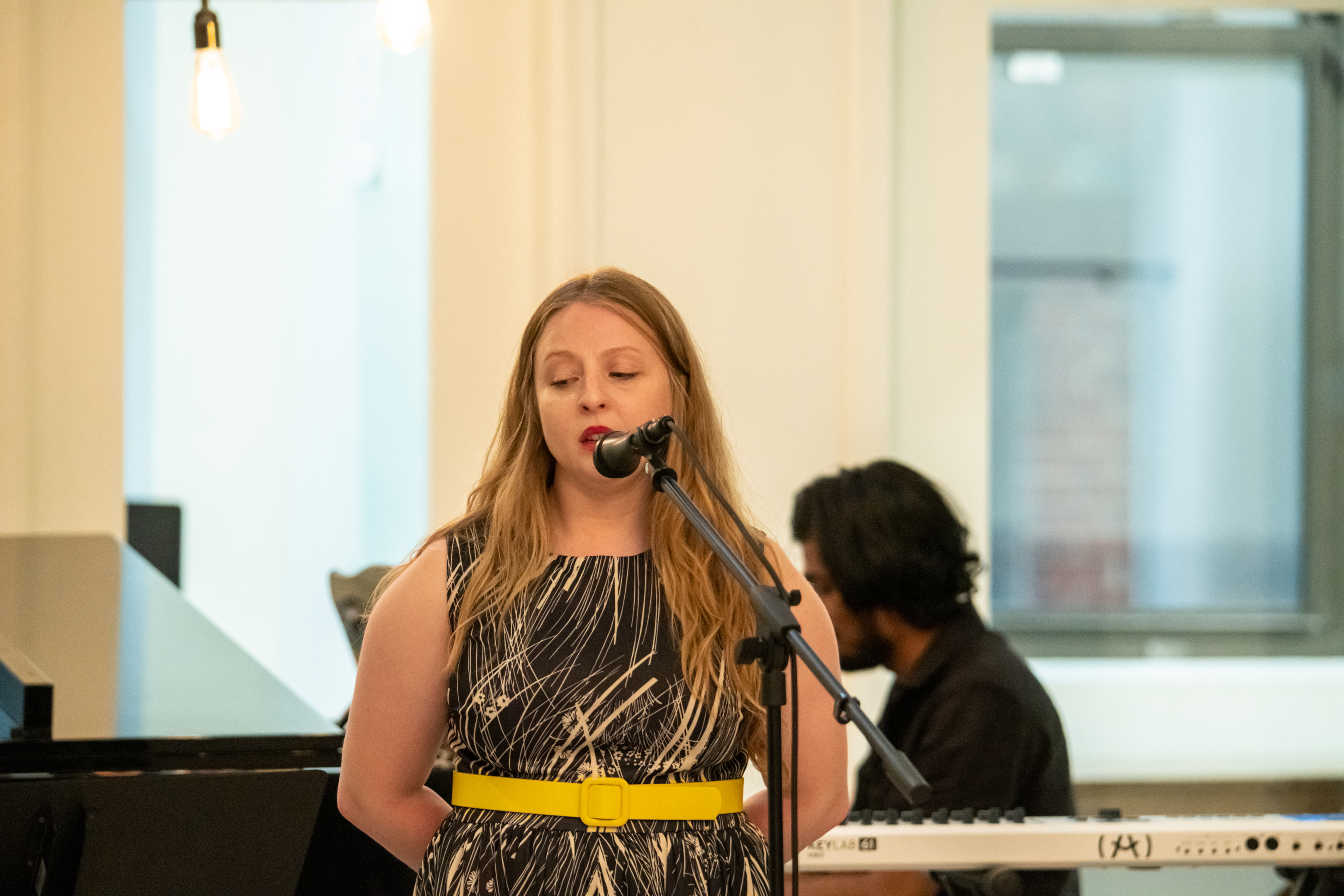
Connect with us!
If you like educational content like this, make sure you’re subscribed to our mailing list – that way you can stay updated on studio events, promotions, and our monthly newsletter, where these blogs are featured. And, if you’re ready to sing, book a call with us and we’ll get you started!

